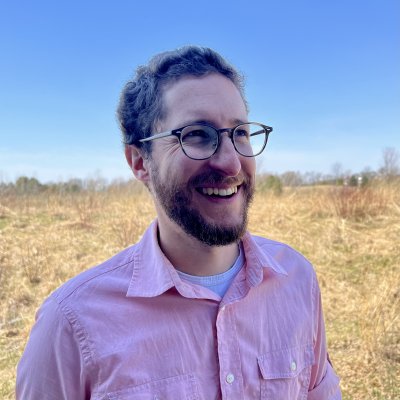Johnny Gerig Meyer ’08

What is your current job and what have you been doing since graduation from GC?
After graduating from Goshen College in 2008, I received an MA in Theological Studies from Anabaptist Mennonite Biblical Seminary, and then taught philosophy and religious ethics at GC for three years in an adjunct role. During this time I also co-founded a web development company, OddBird, with my two siblings (Carl Meyer and Miriam Suzanne, both GC alumni). While I really enjoyed interacting with students, I eventually decided to continue as a full-time web software engineer instead of pursuing a PhD and career in academia.
What does a typical day at your job look like?
OddBird is a small, fully remote team of web designers and developers. I work from a home office, set my own hours, and can generally work as much (or as little) as I like. With two young kids and various interests outside of my work, flexibility and control over my schedule and work environment is really valuable to me.
We contract with a wide variety of companies — from large multinational corporations like Salesforce, Adobe, or Google, to small local businesses or single-person start-ups — to provide custom web software solutions, often augmenting or collaborating with an internal team of developers. This leads to a wide variety in day-to-day tasks, and the types of problems we’re being asked to solve. Some days are spent in video calls listening to client needs or overseeing developers on our team, while others are heads-down days for focused coding and software architecture.
How did studying History at GC prepare you for your career?
It’s a bit of a cliché, but the critical thinking skills I learned in the History department at Goshen College have been invaluable in my career. Web development isn’t primarily about the intricacies of a specific programming language, or figuring out the best way to solve a problem — it’s about listening carefully to the big picture needs, and accurately determining what the problem is to begin with. Clients often come to us with a specific solution in mind, only to later discover that the “need” itself wasn’t what they initially assumed. Shout-out to my college history professors — John Roth, Jan Bender Shetler, and Steve Nolt — for helping me learn to listen deeply and critically… and for being rock star profs.
Do you have any advice for current History students?
First of all, don’t assume that a degree in History is most valuable for a career as an historian, professor, or archivist — hopefully that’s obvious by now. Find professors that inspire and challenge you, and take their classes as much as you can — even if the subject matter might not be your first choice. And finally, if you didn’t do the reading before class, come clean up front. No need to be self-deprecating or overly cautious, but get in the habit of acknowledging the limits of your own expertise or preparation. It’s freeing to be honest about what you don’t know, and that transparency provides space to learn and grow.




